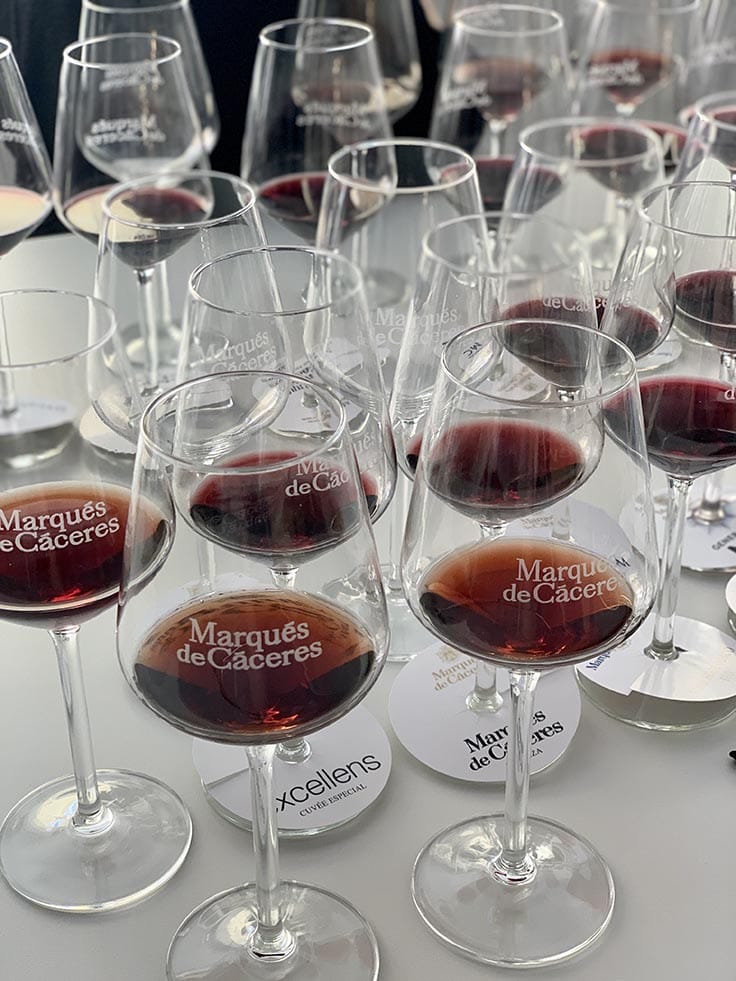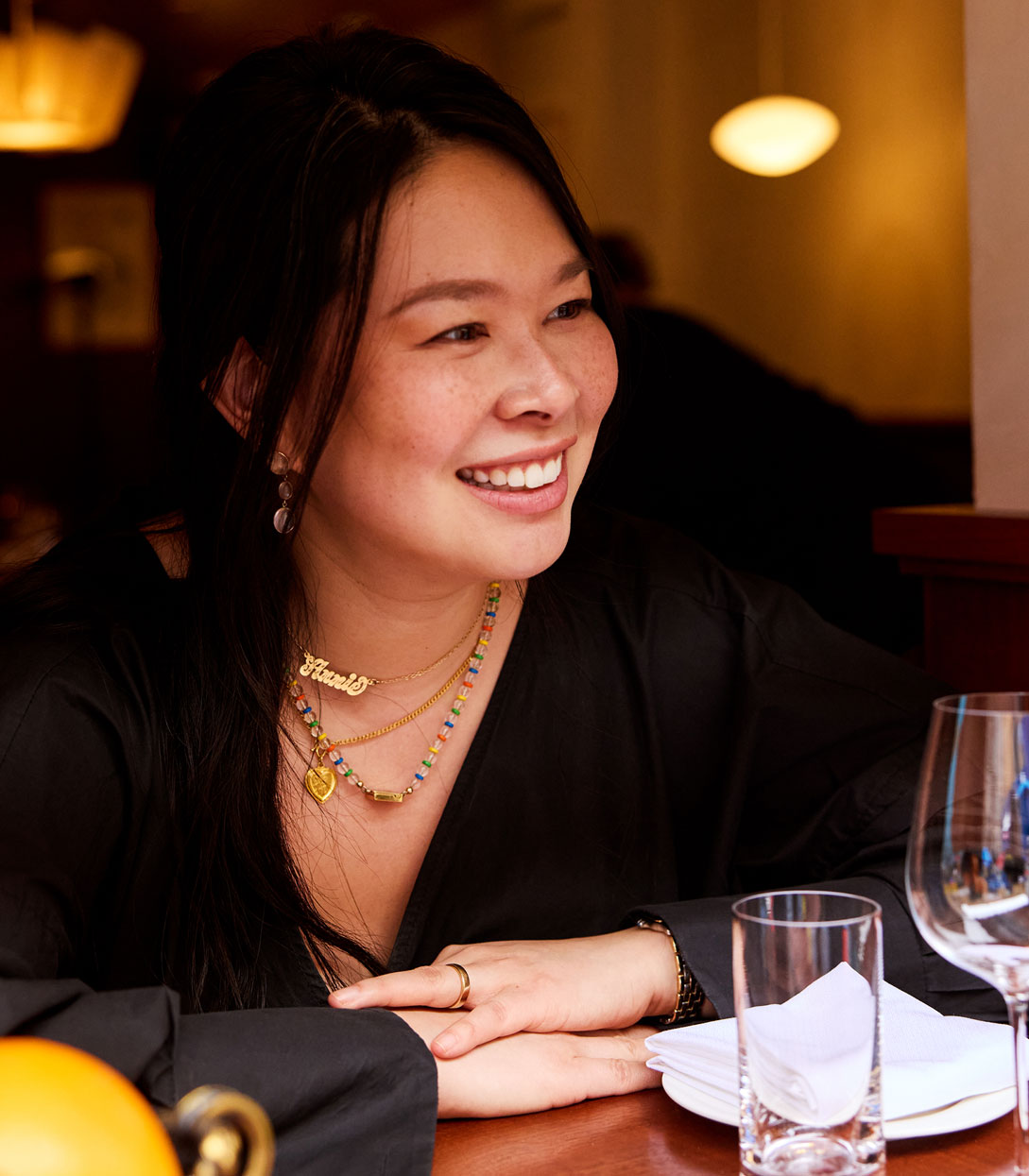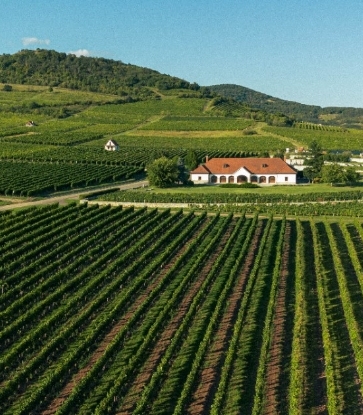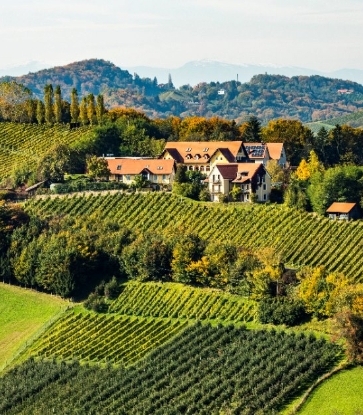Cristina Forner glides into the room in a leopard print, lime kimono complimenting her acclaimed personality; one as vivacious, elegant and robust as the variety of Rioja wines in the Marqués de Cáceres portfolio.
In 1970, Forner’s father and uncle purchased a number of humble vineyards—less than one hectare each—in Rioja Alta. Up until then, Enrique Forner had been living in France’s Rhône Valley, producing wine in Bordeaux; this is where he recognized that the region’s terroir presented similar characteristics to northern Spain, his native country. He was inspired to move back and introduce the region to Bordeaux’s estate bottling techniques, and this is when he established Marqués de Cáceres.
“When my father started to make wine, the red Riojas were aged too long and in old oak barrels,” explains Forner. “He brought the technical vinification of using new french oak barrels, allowing a longer skin contact fermentation, in order to make wines with a deeper color, full body, nice fruit—the oak brought that complexity and elegance.”
It took four years, but when the brand released their first wine in 1974, the label became somewhat of an icon as Mr. Forner revolutionized the winemaking process throughout the Rioja region. “When we launched the first wine, Spain wasn’t prepared at all for this different palate.”

Almost 50 years later and the brand is still one of the most pronounced in the region. Therefore, when Mr. Forner retired at the age of 82, with Cristina assuming the role as president and owner, onlookers presumed she had her work cut out for her. However, Forner didn’t just settle into the family business, she labored to expand the company’s presence throughout Spain, and the world, as she created new opportunities for the brand.
“For me the routine is boring,” says Forner on her decision to purchase 125 hectares of white wine vineyards throughout Rueda. “Now a days our market is needing different context and experiences. I wanted to experiment.”
Forner continues, “I took over in the midst of an economic slum when women weren’t expected to fill these roles. I invested in white wines like Albariño and Verdejo to increase our presence and increase sales. Rioja, Tempranillo and, now, Verdejo are still growing in popularity so it’s been a task but I think Spain has potential.”
With Verdejo, Albariño, Viura and, most recently, Cava, all part of the Marqués de Cáceres portfolio now, Forner takes care to ensure each label boasts branding that depicts the wines’ individual characteristics; all part of Forner’s master plan to produce and classify wines with unique personalities—from their flavors on the palate to the bottles they’re presented in.

This sentiment also reflects Forner’s opinion on accepting a role in a family business, one she admittedly refers to as no easy feat, but still one she undertook with pride since she was able to bring her own personality to the brand after years of working in travel and marketing. Contributing one's own views to a business is something she thinks is a necessity for anyone in line to continue a legacy.
“You need your own experience in a family business otherwise you’re going to live in the shadow; you have to have your own personality,” says Forner.
As Forner continues to expand the portfolio, now exporting Marqués de Cáceres to over 140 countries, she also expands wine tourism in the region of Centicero, by bringing travelers to experience the Marqués de Cáceres bodega and to learn about their winemaking process. “We’re continuing to educate, while sticking to our initial philosophy of making wines with high quality,” she concludes.
Hero image courtesy of Marqués de Cácerés.





















